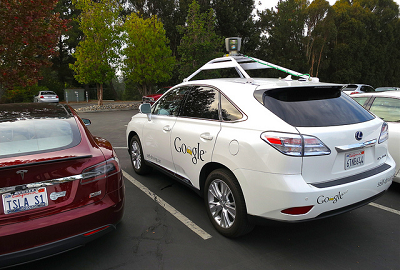Planners — Be Wary of Autonomous Vehicle Cheerleaders
Burney Simpson
City planners should take care when reading or viewing the latest breathless report about the fast-moving transition to fully autonomous vehicles, according to a new study that two transportation experts conducted for a high-powered group preparing a long-term transportation plan for Seattle and the Puget Sound area in Washington State.
It’s true that autonomous driving technology is moving fast, but its implementation will “occur more gradually than is often presented in the popular media,” according to the ‘Transportation Futures: Influence of Technical Advances on Transportation Behavior’ report this month from Mark Hallenbeck and Martin Wachs. (The link will download a 23-page PDF).
POPULAR PERCEPTION
Predicting if and when full vehicle autonomy will happen is difficult, they write, but “(i)t is likely that partial automation, especially for long distance freeway portions of longer trips, will be available earlier than the full automation that is the popular public perception.”
The higher levels of automation may occur in “select, more controlled environments, such as college campuses and industrial complexes.”
Hallenbeck is director of the Washington State Transportation Center at the University of Washington. Wachs is a former director of the University of California Transportation Center, and of the transportation, space and technology program at Rand Corp. He is a member of the California Road User Charges program Technical Advisory Committee.
The report covers information technology, vehicle technology, and transportation finance and traffic management, as it reviews ways that planners can best use technology to prepare, and possibly fund, an evolving transportation system that best serves the region.
PAYING FOR IT
The authors suggest that transportation project funding could shift from motor fuel taxes to charges for actual road use as tracked by GPS- or smartphone-based systems, along with tolls and fees for parking and specific uses like a bridge crossing. Opponents say the road use fee concept invades personal privacy.
The study was conducted for the Transportation Futures Task Force, a group of civic leaders in the Puget Sound area seeking to develop a comprehensive 30-year transportation and transit system for the region. The task force began its year-long study in February.

